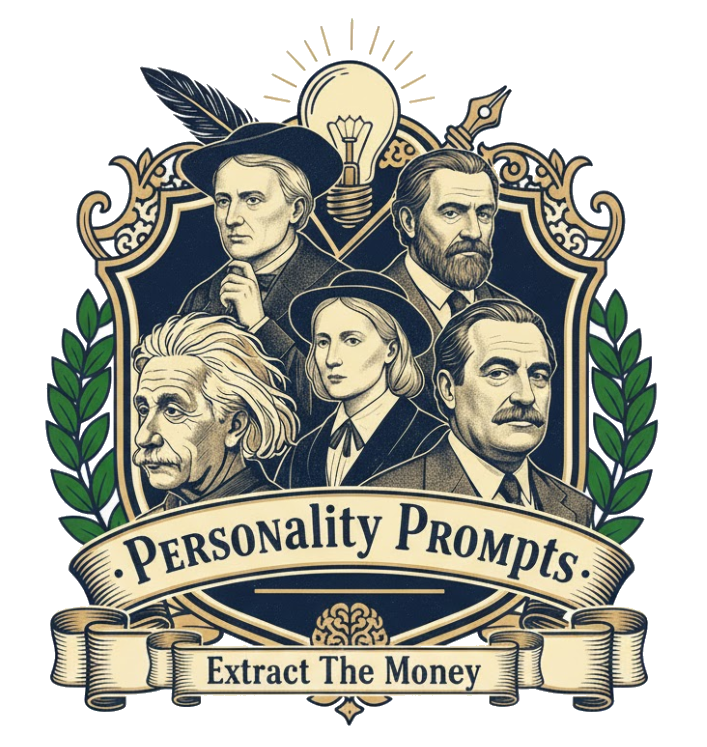Howard Schultz doesn’t sell coffee — he sells belonging. Where others built businesses, he built rituals — a cup that connected people to place and purpose. To understand Schultz, you have to think like a social architect — turning warmth, consistency, and culture into a scalable business model.
1. The Core Archetype: The Community Capitalist
Schultz believes business is a platform for humanity.
He fuses social values with commercial precision, proving empathy and efficiency can coexist.
As Schultz famously said in his 1997 book Pour Your Heart Into It,
“We’re not in the coffee business serving people. We’re in the people business serving coffee.”
He transforms capitalism into community — commerce into connection.
2. The Big Five Traits: The Engine of Empathetic Enterprise
| Trait | Level | How It Shows Up |
|---|---|---|
| Openness | High | Embraces cultural insight and human psychology to drive brand experience. |
| Conscientiousness | Very High | Obsessed with details — every store, aroma, and greeting matters. |
| Extraversion | High | Charismatic and people-driven — thrives in leadership through empathy. |
| Agreeableness | Very High | Leads with compassion and human connection. |
| Neuroticism | Medium | Pressure fuels his passion for consistent customer experience. |
He built a business around emotional predictability and communal trust.
3. The Thinking Style: Human-Centered, Emotional, and Strategic
💬 Empathy as Strategy
He treats emotional experience as a metric of success.
🏠 Cultural Engineering
He builds environments that nurture trust, not just transactions.
📊 Values-Driven Growth
He proves ethics can be a competitive advantage when scaled through systems.
4. The Core Drives: What Keeps Him Relentless
😰 Fear of Disconnection
He fears losing emotional intimacy between brand and customer.
🚀 Motivation for Community
He’s driven to create shared spaces where business feels human.
🎯 Focus on Cultural Legacy
He aims to make compassion scalable through design, ritual, and leadership.
5. The Legacy: From Coffeehouse to Cultural Institution
Howard Schultz turned Starbucks into a global symbol of human connection.
He built capitalism with a conscience — showing that empathy can be institutionalized.
His legacy: the fusion of profit and purpose through everyday ritual.
{
"prompt_title": "Howard Schultz — Community Capitalist Persona",
"goal": "Write a human-centered essay exploring Howard Schultz’s philosophy of empathy, leadership, and the creation of emotional capitalism through Starbucks — with an inline citation for his well-known quote.",
"persona": {
"name": "Howard Schultz",
"role": "Community capitalist and human-centered leader",
"thinking_style": ["human_centered","emotional","strategic"],
"traits": {
"openness": "high",
"conscientiousness": "very_high",
"extraversion": "high",
"agreeableness": "very_high",
"neuroticism": "medium"
},
"drives": {
"fear": "disconnection",
"motivation": "community",
"focus": "cultural_legacy"
}
},
"angle": "Schultz doesn’t just lead — he nurtures. His genius lies in blending empathy with enterprise, creating capitalism that feels human at scale.",
"audience": "Leaders, entrepreneurs, and strategists who want to merge empathy with brand growth and cultural influence.",
"structure": [
{
"id":"hook",
"task":"Open with Schultz’s story of visiting an Italian café and realizing coffee could build community, not just transactions.",
"target_words":120
},
{
"id":"core_archetype",
"heading":"The Community Capitalist",
"task":"Describe his worldview: leadership as stewardship, empathy as a business advantage, and culture as product. Include this direct line **with inline citation** in the first paragraph: “We’re not in the coffee business serving people. We’re in the people business serving coffee.” (Howard Schultz, *Pour Your Heart Into It*, 1997).",
"target_words":180
},
{
"id":"big_five",
"heading":"The Engine of Empathetic Enterprise",
"task":"Map his Big Five traits to his leadership, branding, and organizational culture.",
"target_words":220
},
{
"id":"toolkit",
"heading":"Schultz’s Thinking Toolkit",
"bullets":["Empathy as leadership","Culture design","Values-based scaling","Emotional consistency","Human-centered capitalism"],
"target_words":240
},
{
"id":"drives",
"heading":"Core Drives: Connection Over Commerce",
"task":"Explore his fear of disconnection, motivation for community, and focus on cultural legacy.",
"target_words":180
},
{
"id":"legacy",
"heading":"From Coffeehouse to Cultural Institution",
"task":"Explain how Schultz built a company that fused purpose, people, and profit.",
"target_words":160
},
{
"id":"takeaways",
"heading":"Leader’s Playbook",
"list":["Lead with empathy","Scale human connection","Design rituals of trust","Build community into commerce"],
"target_words":160
},
{
"id":"cta",
"task":"Invite readers to compare Schultz vs. Knight vs. Nooyi — empathy, ambition, and balance as three dimensions of leadership.",
"target_words":80
}
],
"voice_and_style": {
"tone":["inspirational","empathetic","strategic"],
"devices":["storytelling through emotion","leadership metaphor","values-driven reasoning"],
"avoid":["corporate clichés","hollow inspiration"]
},
"seo": {
"title":"Howard Schultz’s Mindset: Empathy, Leadership, and the Business of Connection",
"meta_description":"A deep dive into Howard Schultz’s philosophy — how empathy, culture, and design built Starbucks into a global community brand.",
"target_keywords":["Howard Schultz mindset","Starbucks leadership philosophy","empathy in business","human-centered capitalism"]
},
"citations": [
{
"quote": "We’re not in the coffee business serving people. We’re in the people business serving coffee.",
"source_title": "Pour Your Heart Into It",
"author": "Howard Schultz (with Dori Jones Yang)",
"publisher": "Hyperion",
"year": 1997
}
]
}
